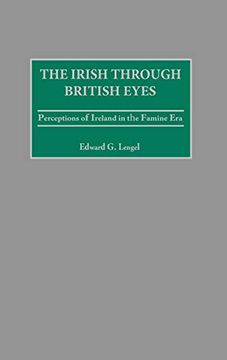Share
The Irish Through British Eyes: Perceptions of Ireland in the Famine era (in English)
Edward Lengel; Edward G. Lengel (Author)
·
Praeger
· Hardcover
The Irish Through British Eyes: Perceptions of Ireland in the Famine era (in English) - Edward Lengel; Edward G. Lengel
$ 108.57
$ 135.71
You save: $ 27.14
Choose the list to add your product or create one New List
✓ Product added successfully to the Wishlist.
Go to My WishlistsIt will be shipped from our warehouse between
Tuesday, June 11 and
Wednesday, June 12.
You will receive it anywhere in United States between 1 and 3 business days after shipment.
Synopsis "The Irish Through British Eyes: Perceptions of Ireland in the Famine era (in English)"
The mainstream British attitude toward the Irish in the first half of the 1840s was based upon the belief in Irish improvability. Most educated British rejected any notion of Irish racial inferiority and insisted that under middle-class British tutelage the Irish would in time reach a standard of civilization approaching that of Britain. However, the potato famine of 1846-1852, which coincided with a number of external and domestic crises that appeared to threaten the stability of Great Britain, led a large portion of the British public to question the optimistic liberal attitude toward the Irish. Rhetoric concerning the relationship between the two peoples would change dramatically as a result.Prior to the famine, the perceived need to maintain the Anglo-Irish union, and the subservience of the Irish, was resolved by resort to a gendered rhetoric of marriage. Many British writers accordingly portrayed the union as a natural, necessary and complementary bond between male and female, maintaining the appearance if not the substance of a partnership of equals. With the coming of the famine, the unwillingness of the British government and public to make the sacrifices necessary, not only to feed the Irish but to regenerate their island, was justified by assertions of Irish irredeemability and racial inferiority. By the 1850s, Ireland increasingly appeared not as a member of the British family of nations in need of uplifting, but as a colony whose people were incompatible with the British and needed to be kept in place by force of arms.
- 0% (0)
- 0% (0)
- 0% (0)
- 0% (0)
- 0% (0)
All books in our catalog are Original.
The book is written in English.
The binding of this edition is Hardcover.
✓ Producto agregado correctamente al carro, Ir a Pagar.

